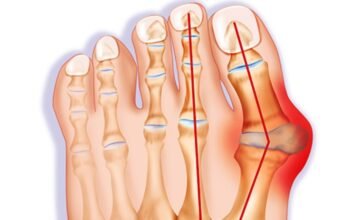Our bodies are incredibly complex and sophisticated systems that constantly communicate with us through various signs and symptoms. Understanding these warning signals can be crucial in maintaining good health and catching potential medical issues early. By learning to recognize and interpret these bodily indicators, you can take proactive steps towards better overall wellness and potentially prevent serious health complications.
Recognizing Common Health Warning Signs
Our bodies often send subtle yet significant signals when something isn’t functioning optimally. Paying attention to these signs can make a substantial difference in early detection and treatment of various health conditions.
Fatigue and Weakness
Persistent fatigue that doesn’t improve with rest could indicate underlying health issues such as:
- Anemia
- Thyroid disorders
- Chronic fatigue syndrome
- Depression
Unexplained Pain
Chronic or recurring pain in specific body areas might signal more serious conditions. For instance, persistent chest pain could indicate heart problems, while consistent joint pain might suggest inflammatory disorders like arthritis.
Skin Changes and Rashes
Your skin often reflects internal health conditions. Unusual rashes, discoloration, or sudden changes in skin texture could be warning signs of:
- Autoimmune diseases
- Allergic reactions
- Hormonal imbalances
- Potential skin cancer
Specific Health Conditions and Their Warning Signs
Diabetes Symptoms
Early detection of diabetes can significantly improve long-term health outcomes. Key warning signs include:
- Increased thirst
- Frequent urination
- Unexplained weight loss
- Blurred vision
- Slow-healing wounds
Heart Disease Signs
Cardiovascular issues often manifest through subtle symptoms. Be alert for:
- Chest discomfort or pain
- Shortness of breath
- Irregular heartbeat
- Unexplained fatigue
- Swelling in legs or ankles
Maintaining Overall Health and Wellness
While recognizing warning signs is crucial, prevention remains the most effective health strategy. Implementing healthy lifestyle choices can significantly reduce your risk of developing serious medical conditions.
Key Lifestyle Recommendations
- Nutrition: Consume a balanced diet rich in fruits, vegetables, lean proteins, and whole grains
- Exercise: Engage in at least 150 minutes of moderate physical activity weekly
- Stress Management: Practice techniques like meditation, yoga, or deep breathing
- Sleep: Aim for 7-9 hours of quality sleep nightly
- Hydration: Drink adequate water daily
Listening to Your Body
Developing body awareness is a skill that requires practice and attention. Consider keeping a health journal to track symptoms, patterns, and potential triggers. This documentation can be invaluable when consulting healthcare professionals.
When to Seek Medical Advice
While not every symptom indicates a serious condition, certain signs warrant immediate medical attention:
- Symptoms lasting more than two weeks
- Severe or progressively worsening pain
- Unexplained weight changes
- Significant changes in bodily functions
Final Thoughts
Your body is an incredible messenger, continuously providing insights into your health. By staying informed, practicing self-awareness, and maintaining a proactive approach to wellness, you can effectively interpret and respond to these vital signs. Remember, early detection and prevention are key to maintaining long-term health and well-being.
Always consult healthcare professionals for personalized medical advice and comprehensive health assessments.






